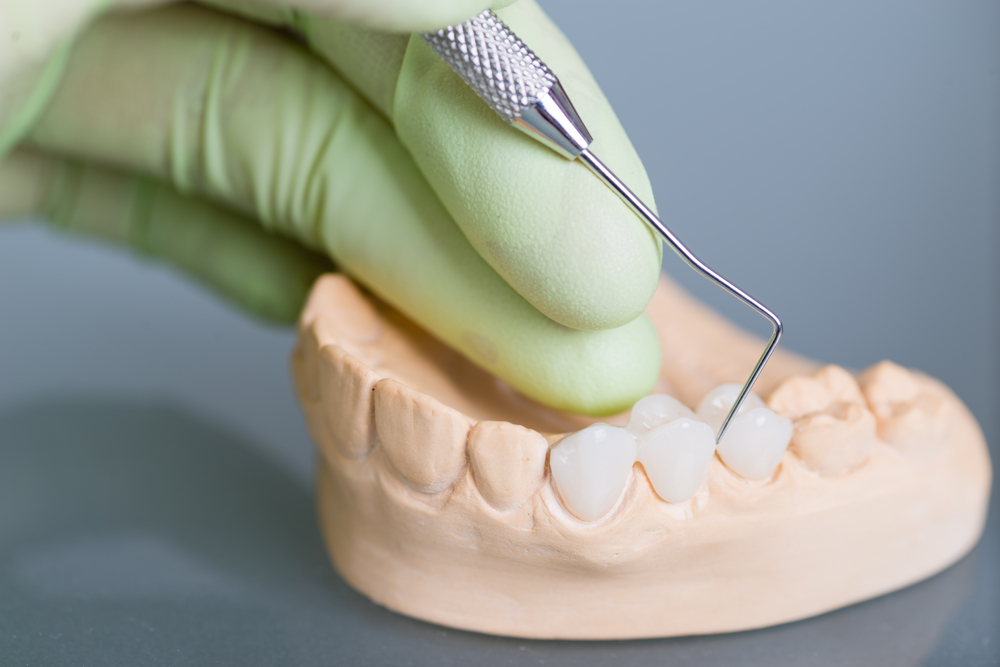
Dental bridges are a type of dental prosthesis used to replace missing teeth. They are custom-made for each patient and are intended to restore both the function and appearance of your smile. Dental bridges, as the name suggests, quite literally bridge the gap created by one or more missing teeth.
The Need for a Dental Bridge
The need for a dental bridge often arises following tooth loss. This can occur due to a variety of factors, ranging from gum disease and decay to traumatic injury. Regardless of the cause, the loss of a tooth can cause significant disruptions to your oral health and overall well-being.
For instance, missing teeth can make it difficult to eat or speak clearly. Over time, the teeth adjacent to the gap may begin to shift, causing a poor bite and potential jaw problems. Tooth loss can also impact your self-confidence, making you hesitant to smile or engage in social situations.
By filling in the gap with a dental bridge, you can regain your ability to eat and speak properly, prevent remaining teeth from shifting, and restore the confidence that comes with a healthy, full smile.
Understanding Dental Bridge Candidacy
Are dental bridges right for everyone who has lost a tooth? Not necessarily. While these restorations can offer many benefits, it's essential to understand dental bridge candidacy.
To qualify as a candidate for dental bridges, you must have one or more missing teeth. However, you must also have healthy teeth on either side of the gap, as these serve as the anchors for the dental bridge. These anchor teeth must be strong enough to support the bridge, which means they should be free from decay and gum disease.
Additionally, your overall oral health should be good. This means no active gum disease or untreated decay, as these issues could complicate the placement of a dental bridge. You should also be committed to maintaining good oral hygiene after the bridge is placed, as this will help ensure the longevity of your restoration.
Factors Influencing Your Candidacy for Dental Bridges
Several factors can influence your candidacy for dental bridges. These include the number of missing teeth and their location, the health of your remaining teeth, and your overall oral health.
Firstly, the number and location of your missing teeth play a significant role. If you have multiple missing teeth in a row, a dental bridge may not be the best solution. Similarly, if the missing teeth are at the back of your mouth, a bridge may not be feasible.
The health of your remaining teeth is also crucial. If the teeth that will serve as anchors for the bridge are not healthy, they may not be able to support the bridge effectively. This is why dental health professionals often recommend treating any existing dental problems before considering a bridge.
Finally, your overall oral health is a significant factor. If you have active gum disease or other untreated dental conditions, these may need to be addressed before a bridge can be safely placed.
The Process of Assessing Your Candidacy for Dental Bridges
Assessing your candidacy for dental bridges typically involves a thorough dental examination. This examination will likely include dental X-rays to evaluate the health of your teeth and jawbone.
During this examination, your dentist will assess the state of your oral health, the health of your remaining teeth, and the number and location of your missing teeth. They will also consider your oral hygiene habits, as these can significantly impact the success of a dental bridge.
Based on this assessment, your dentist can then determine if a dental bridge is the right solution for you. If you are a suitable candidate, they will discuss the procedure in more detail, including the benefits and potential risks, to help you make an informed decision.
Making the Right Choice for Your Dental Health
By understanding the factors that influence your candidacy and the process of assessing your suitability for a dental bridge, you can make an informed decision about your dental health. The best dental decisions are made in collaboration with your dental health professional, who can guide you based on your unique needs and circumstances.
To assess your candidacy for a dental bridge, visit SmileOn Dentistry in our Marina Del Rey, California office. Call (310) 822-0202 to schedule an appointment today.









